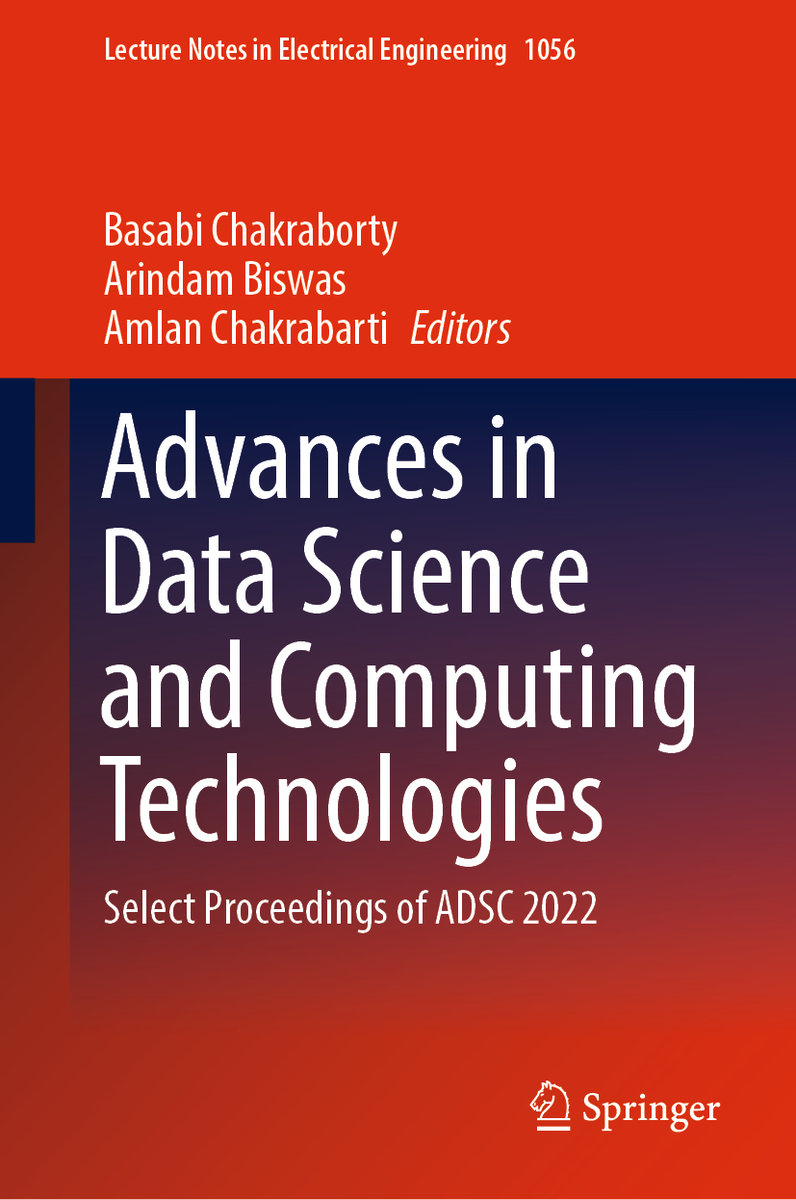Basabi Chakraborty received B.Tech., M.Tech., and Ph.D. degrees in Radio Physics and Electronics from Calcutta University, India, and worked at Indian Statistical Institute, Calcutta, India until 1990. From 1991 to 1993 she worked as a part-time researcher in Advanced Intelligent Communication Systems Laboratory in Sendai, Japan. She received another Ph. D in Information Science from Tohoku University, Sendai in 1996. From 1996 to 1998, she worked as a postdoctoral research fellow at the Research Institute of Electrical Communication, Tohoku University, Japan. In 1998 she joined as a faculty in the Software and Information Science department of Iwate Prefectural University, Iwate, Japan. Her research areas are pattern recognition, image processing, soft computing techniques, biometrics, data mining, and online social media mining.Arindam Biswas received M.Tech. in Radio Physics and Electronics from the University of Calcutta, India, in 2010 and a Ph.D. from NIT Durgapur in 2013. He was a postdoctoral researcher at Pusan National University, South Korea with the prestigious BK21PLUS Fellowship, Republic of Korea. He was a visiting Professor at the Research Institute of Electronics, Shizuoka University, Japan. Dr. Biswas has 12 years of teaching, research, and administrative experience. Presently, Dr. Biswas is working as an Associate Professor in the School of Mines and Metallurgy at Kazi Nazrul University, Asansol, WB, India. He has 54 papers in journals, 36 conference papers, 8 books, 06 Edited Volumes, and 01 book chapter to his credit. His research interest is in carrier transport in the low dimensional system and electronic device, non-linear optical communication, and THz semiconductor source. Amlan Chakrabarti is a Full Professor in the A.K. Choudhury School of Information Technology at the University of Calcutta. He is an M.Tech. from the University of Calcutta and did his Doctoral research at Indian Statistical Institute, Kolkata. He was a Post-Doctoral fellow at the School of Engineering, Princeton University, the USA during 2011-2012. He is the recipient of the prestigious DST BOYSCAST fellowship award in Engineering Science (2011), Indian National Science Academy (INSA) Visiting Faculty Fellowship (2014), JSPS Invitation Research Award (2016), Erasmus Mundus Leaders Award from EU (2017), and Hamied Visiting Professorship from University of Cambridge (2018) and Siksha Ratna Award by Dept. of Higher Education Govt. of West Bengal (2018). He has also served in various capacities in various higher education organizations both at national and international levels. He has received multiple project grants in the areas of Security in Cyberphysical Systems, Embedded System Design, VLSI Design, Quantum Computing, Computer Vision, and Data Science from various national and international agencies (DST, DRDO, MietY, UGC, DAE, Ministry of Social Empowerment, WB-DST, Tata Consultancy Services, Intel India, etc.). He has published around 150 research papers in referred journals and conferences. His areas of research interest are quantum computing, reconfigurable computing, embedded systems design, VLSI design, computer vision, and machine learning.



